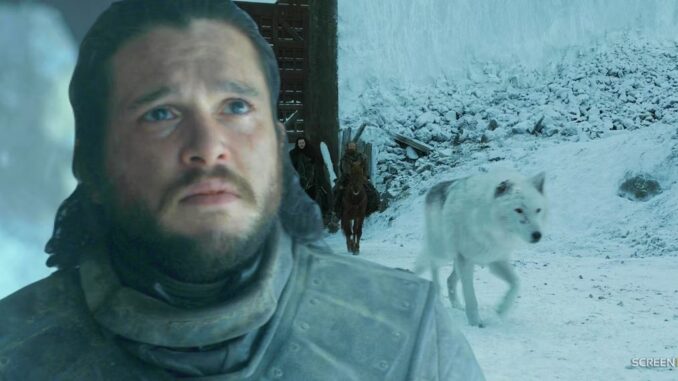
Kit Harington revealed that Game of Thrones’ Jon Snow spinoff is no longer in development and, given what transpired in season 8, that’s for the best.
HBO is not moving forward with Game of Thrones’ Jon Snow spinoff, and that’s good news after season 8 – but not because it was all bad. A sequel show following Kit Harington’s character was put into development back in 2022, a surprising decision after the backlash to Game of Thrones’ ending. Nevertheless, with Harington set to return and pushing the idea forward, it seemed like the show would happen.
That, however, is no longer the case. Harington told Screen Rant the Jon Snow spinoff is canceled, as he and the team of writers couldn’t find the right story to tell. While HBO might return to it one day, it’s “off the table” for the foreseeable future. Game of Thrones’ Jon Snow sequel likely would have been a hit had it made it to screens but, given both where the character’s story ended and the difficulties in picking things back up, it’s ultimately for the best.
Jon Snow Going Back Beyond The Wall Was The Best Part Of Game Of Thrones’ Ending
Game Of Thrones Season 8 Was Divisive, But Jon’s Fate Was The Right Choice
There were many problems with Game of Thrones season 8, but Jon Snow’s final fate was not one of them. Yes, there were some divisive decisions getting there (i.e. killing Daenerys Targaryen) and logical leaps (why does the Night’s Watch even exist?), but Jon Snow going back beyond the Wall was absolutely the perfect ending for his story. It’s where the character belonged, and made the most sense for his entire arc.
Jon was an outsider, a bastard, the White Wolf; he belongs in those lands beyond the Wall just like Ghost does.
Jon was always of the North. He was more Stark than Targaryen; Ned Stark’s son, truly, even if biology says otherwise. He never wanted to rule, and so Jon taking the Iron Throne (even if he hadn’t killed Dany) wouldn’t have been the right option. King’s Landing was no place for him. But nor was Winterfell, by the end.

It was the true North where Jon found himself. That’s where he was not only fully forged into the man he is by the show’s ending, but where his heart lingered too, thanks to Ygritte. Jon was an outsider, a bastard, the White Wolf; he belongs in those lands beyond the Wall just like Ghost does. It’s an ending that carried on parts of those others who made him what he was, the likes of Maester Aemon and Mance Rayder, and brought his story (and the show itself, given it opened with rangers heading out beyond the Wall) full circle.
It’s a close mirror of Lord of the Rings, where Frodo heads to the Undying Lands, and works on a similar level thematically. Jon’s spent so much of his life fighting: the Wildlings, the White Walkers, Ramsay Bolton, Cersei Lannister, and even Dany. He carries scars from all of those; trauma from the ones he’s lost and the ones he’s killed. Going beyond the Wall in Game of Thrones’ series finale meant, at last, he could finally find peace.
Jon Snow’s Sequel Would’ve Been A Big Risk To His Game Of Thrones Ending
Picking Up After Game Of Thrones Season 8 Is Hard To Do
Jon Snow’s spinoff would, inevitably, have made a big impact on his Game of Thrones ending one way or another. That would be especially true if it had him return south of the Wall, once again being involved in Westerosi conflicts or politics. He deservedly left all that behind, that part of his life is over, and there’s little value in returning to it.
He’s been killed once, and having him try to find peace, but still carrying around his scars (figurative and literal) is more powerful than another death.
Even if it stayed beyond the Wall, it would still need new conflict. Jon’s already fought with the Wildlings, so to do that again would be unnecessary and go against his ending. Even having Jon die wouldn’t carry much weight. He’s been killed once, and having him try to find peace, but still carrying around his scars (figurative and literal) is more powerful than another death. It’s not impossible that a Jon Snow spinoff could have worked, but it would be very hard to avoid changing – and thus hurting – the best part of Game of Thrones’ ending.
